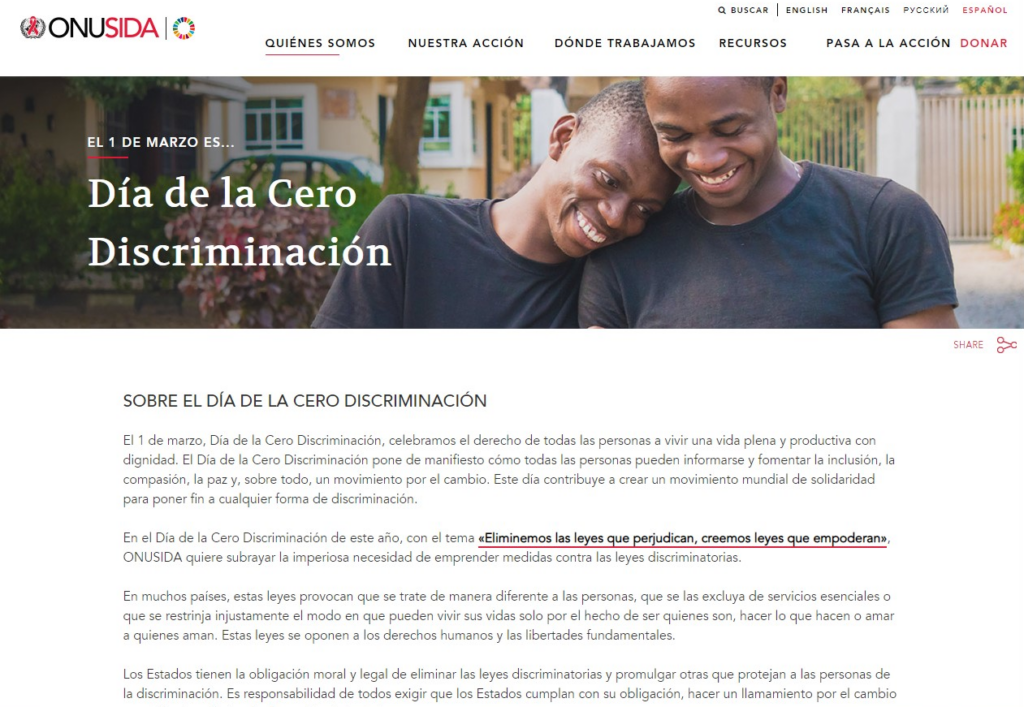Esta entrada también está disponible en: Aragonés Català Español Français English
IT IS NOT EASY TO BE GREEN
I am a green dog. Yes, yes, yes. I am a dog and I am green. I am a green Siberian husky. Instead of having that black and white fur typical of huskies, mine is green. I didn’t choose it, I don’t dye it or anything. It’s just that I was born that way and I couldn’t do anything about it. So I’m a green dog.
Normally, everyone loves dogs like me: big, strong, active, protective of the pack. Unless you’re green. If you’re green, everybody doesn’t care that you’re big, soft, the strongest, the most active and that you protect the pack like nobody has ever protected your family before because, first and foremost, you’re green.
I know this because I have experienced it myself. A family adopted me a few years ago and I tried to be the best dog in the world: the most loyal, the best friend of all and willing to do anything to help any relative of the boy who adopted me. But when his grandmother saw me, she didn’t give a damn about my efforts: “But how are you going to protect my family? Can’t you see that you are green?
And she was right. If she had told me I was a bad dog, I would have been able to refute it. I would have told him that I follow the dog’s creed to the letter and that I have never been known to leave my pack unprotected. But he didn’t say that, he said I was green, and faced with that irrefutable fact, I didn’t know what to say. So I had to leave that house.
If the words had come out, I would have liked to tell him that, although I am green, I am as much a dog as anyone else, I run, I bark, I curl up on the sofa and sniff as much as anyone else. Green is just a colour that, for reasons beyond my control, has ended up in my coat.
I would have loved to tell them, but when I see that look of disguised disgust and surprise they sometimes give me, I’m usually at a loss for words. What would you tell them? Would you tell them to try to stop looking at your fur and get to know you? It’s hard to convince them because we’ve all been taught that a green dog is a strange thing, haven’t you heard the expression? You’re weirder than a green dog. If you’ve heard it all your life, it’s normal to think so, isn’t it?
But what happens if you are a green dog? That you feel awful, a real wreck who doesn’t deserve anyone’s respect, that’s what you come to think when all they see about you is that you’re green, or yellow, or black, or Muslim, or gay, or poor. Doesn’t it count for anything that we’re good dogs? Or good humans?
Description
Since 2014, the right of all people to live a full and productive life with dignity has been celebrated on this date. Zero Discrimination Day aims to promote inclusion, solidarity and peace and, above all, to help bring about changes that make a more sustainable society possible.
The right to non-discrimination implies that all people are treated with dignity: that their autonomy, privacy and confidentiality are respected, and that they are guaranteed freedom from coercion and abuse on equal terms.
With a view to upholding human rights and fundamental freedoms, special emphasis is placed on the dignity of all people regardless of their affective and sexual choices and gender identity, a day promoted by the Joint United Nations Programme on HIV/AIDS (UNAIDS).

Further information
The contents and objectives of this proposal partially coincide with those of the International Day against Violence and Bullying at School (first Thursday of November) and with those of Human Rights Day (10 December). It also relates to World AIDS Day (1 December).
In Aragon…
Here, for some years now, different entities (LGTBIQ+ collectives, trade unions, official bodies, the University, non-governmental organisations, etc.) have been organising events, conferences, information tables… as a way of raising awareness of diversity and showing rejection of discrimination in any form.
Beyond the specific significance of the date, in Aragon we have the Equality and Non-Discrimination Attention Space, which depends on the Equality Service of the General Directorate for Equality and Families, whose mission is to carry out actions and measures that, within the scope of the administration of our autonomous community, contribute to the promotion of equal treatment and non-discrimination.
From this link you can access the resources that this Directorate General makes available to all persons who request access to one of the equality services or file a complaint for having suffered a discriminatory incident.
A detail
The different celebrations each year focus on different aspects and details that allow to concentrate the attention on them. So far they have been:
- 2014. Join the transformation
- 2015. Open up to the world, reach out to the world
- 2016. Be different
- 2017. Make yourself felt, by #cerodiscrimination
- 2018. Do you discriminate?
- 2019. Mobilise to change discriminatory laws
- 2020. Zero discrimination against women and girls
- 2021. Ending inequality
- 2022. Let’s eliminate laws that hurt, let’s create laws that empower
- 2023. Decriminalising saves lives
A reflection
UNAIDS synthesises the efforts of several UN agencies to try to eradicate the HIV/AIDS epidemic, develop strategies and counteract the stigma it carries. Since its emergence some forty years ago, the groups that have suffered most from the disease (homosexuals and drug addicts) have been blamed, when the reality is that it is a cruel disease, which has taken millions of lives and which is particularly prevalent in Third World countries.
AIDS is a public health problem, but it also reflects social inequalities, global imbalances, and concentrates prejudice, ignorance and discrimination around it. It is therefore logical that in this area, the term “zero discrimination” should be used. Among the various resources and publications available on the UNAIDS website, see the report “EU participation in the Global Alliance on Zero Discrimination Day”.
Suggestions for teachers
The Joint United Nations Programme on HIV/AIDS (UNAIDS) brings together the efforts of 11 UN organisations: UNHCR, UNICEF, WFP, UNDP, UNFPA, UNODC, UN Women, ILO, UNESCO, WHO and the World Bank. You can research the acronyms and start a conversation about the relationship of each of these organisations.
It is recommended not to lose touch with different campaigns that are regularly presented in the UN environment, mainly in relation to the Sustainable Development Goals. For example, visit and reflect on contents such as those offered on the “Positive support” (Apoyo positivo) website.
This proposal is clearly cross-curricular and requires continuous attention in the classroom and at school. It reinforces the development of values that promote effective equality between men and women and the prevention of gender violence, and the values inherent to the principle of equal treatment and non-discrimination for any personal or social condition or circumstance, encouraging learning to prevent any type of violence and the peaceful resolution of conflicts.
It participates in methodological principles such as attention to the diversity of students and special attention to emotional intelligence, promoting a classroom and school climate that favours personal balance and personal relationships based on the fundamental values of coexistence, from the prevention of conflicts and their peaceful resolution, as well as non-violence in all areas.
Objectives that this proposal helps to achieve
ESO:
- To responsibly assume their duties, to know and exercise their rights in respect for others, to practice tolerance, cooperation and solidarity among individuals and groups, to exercise in dialogue, strengthening human rights and equal treatment and opportunities between women and men, as common values of a plural society, and to prepare for the exercise of democratic citizenship.
- To value and respect the difference between the sexes and the equality of rights and opportunities between them. Reject discrimination against people on grounds of sex or any other personal or social condition or circumstance. Reject stereotypes that discriminate between men and women, as well as any manifestation of violence against women.
- To strengthen their affective capacities in all areas of their personality and in their relationships with others, as well as to reject violence, prejudices of any kind, sexist behaviour and to resolve conflicts peacefully.
Baccalaureate:
- To exercise democratic citizenship, from a global perspective, and acquire a responsible civic conscience, inspired by the values of the Spanish Constitution, as well as by human rights, which fosters co-responsibility in the construction of a just and equitable society.
- To consolidate a personal and social maturity that allows them to act responsibly and autonomously and to develop their critical spirit. To foresee and resolve personal, family and social conflicts peacefully.
- To promote effective equality of rights and opportunities between men and women, to analyse and critically assess existing inequalities and discrimination, in particular violence against women, and to promote real equality and non-discrimination of people on the basis of any personal or social condition or circumstance, with special attention to people with disabilities.
Subjects with which it can be linked
- Ethical values (ESO, 1st and 2nd cycles)
- Education for citizenship and human rights (ESO, 2nd cycle)
- Baccalaureate: To be assigned according to modality
Development of competences
- Social and civic competences
